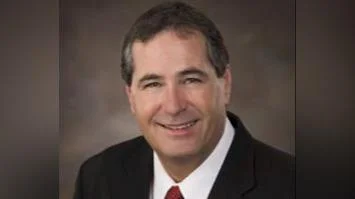James Meigs, Journalist and Senior Fellow at the Manhattan Institute | Manhattan Institute
James Meigs, Journalist and Senior Fellow at the Manhattan Institute | Manhattan Institute
James Meigs, a senior fellow at the Manhattan Institute, said that Greenpeace provided behind-the-scenes financial support for pipeline protests. He emphasized that the concern was about trespass and vandalism, not lawful protest. Meigs made these remarks on the Influence Watch podcast.
"Greenpeace helped, behind the scenes, to fund the pipeline protests," said Meigs, Journalist and Senior Fellow. "The issue was not the legitimate exercise of free speech or protest rights. It was acts of trespass and vandalism directed at the pipeline."
Greenpeace has been a prominent force in environmental activism since its founding in 1971, often engaging in direct action against industries it considers environmentally harmful. Over the decades, the organization has expanded globally, focusing on issues such as climate change, deforestation, and fossil fuel infrastructure. According to Greenpeace International, its campaigns have frequently included protests against oil and gas projects, including pipelines.
The U.S. Energy Information Administration (EIA) reported that as of 2022, the United States had more than 3.3 million miles of natural gas pipelines, including gathering, transmission, and distribution systems. These pipelines are critical infrastructure for delivering energy to homes, businesses, and industries nationwide. The EIA maintains this data to support energy planning, safety oversight, and policy development.
The Dakota Access Pipeline protests began in early 2016 and became one of the largest Indigenous-led protest movements in U.S. history. The Standing Rock Sioux Tribe opposed the pipeline’s route beneath Lake Oahe due to concerns about water contamination and insufficient consultation. According to NPR, the movement drew thousands of supporters, including environmental groups, and sparked a national debate over tribal sovereignty and energy infrastructure.
Meigs is a journalist and senior fellow at the Manhattan Institute. He previously served as editor-in-chief of Popular Mechanics and writes about technology, energy, environmental policy, and culture for outlets including City Journal, Commentary, and The Wall Street Journal. Meigs holds a B.A. in philosophy from Dartmouth College.






 Alerts Sign-up
Alerts Sign-up